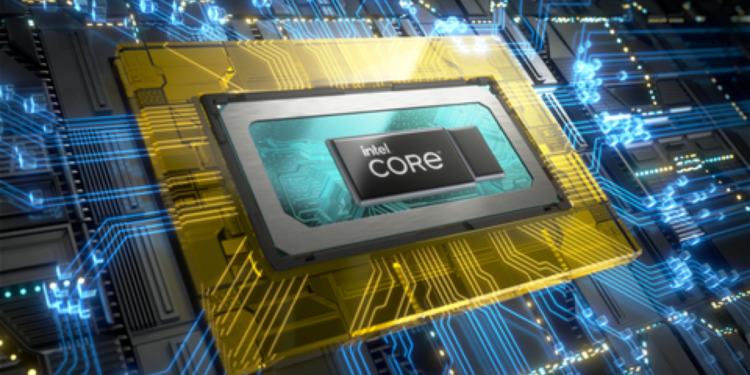Intel has already announced that its new high-end Core i9 processor is faster than Apple's M1 Max chip in the 16-inch MacBook Pro. As Macworld now reports, the first Geekbench 5 results seem to confirm this claim. But: The whole thing comes at a high price.
The Geekbench 5 results showthat the GE76 Raider with the Core i9-12900HK processor has an average multi-core score of 12,707 while the 16-inch MacBook Pro with the M1 Max chip has an average multi-core score of 12,244. This means that the Core i9 processor is about 4% faster than the M1 Max chip in this comparison. But there is a catch. One of the biggest weak points is power efficiency. PCWorld has measured the power consumption of the new GE76 Raider measured while a pure CPU benchmark was performed with Cinebench R23.
Intel vs. Apple: Long battery life is important
It found that the Core i9 was consistently in the 100-watt range and even briefly reached 140 watts. For comparison, when running the same Cinebench R23 benchmark on the 16-inch MacBook Pro, AnandTech found that the M1 Max chip draws around 40 watts of power from the wall outlet. Since the Core i9 consumes much more power, battery life suffers significantly. PCWorld found that the new GE76 Raider achieved almost six hours of offline video playback. Apple advertises the latest 16-inch MacBook Pro as having a battery life of up to 21 hours of offline video playback. Despite possible differences in display brightness and other factors, the 16-inch MacBook Pro achieves significantly more battery life.
Apple Silicon: Energy efficiency and performance in harmony
Design also plays a role: The GE76 Raider is a 17-inch gaming laptop that is just over an inch thick and weighs almost 6.5 pounds. For comparison, the new 16-inch MacBook Pro is 0.66 inches thick and weighs around 4.8 pounds. All in all, Intel's claim that its new Core i9 processor is faster than the M1 Max chip seems to hold true. But Apple is unlikely to regret switching to its own energy-efficient chips for thin and light notebooks like the MacBook Air and MacBook Pro. And with the M2 chip expected later this year, Apple is just getting started. Apart from that, the energy efficiency alone should speak for itself, especially since this "small" performance difference is unlikely to be noticeable in everyday use. (Image: Intel)





